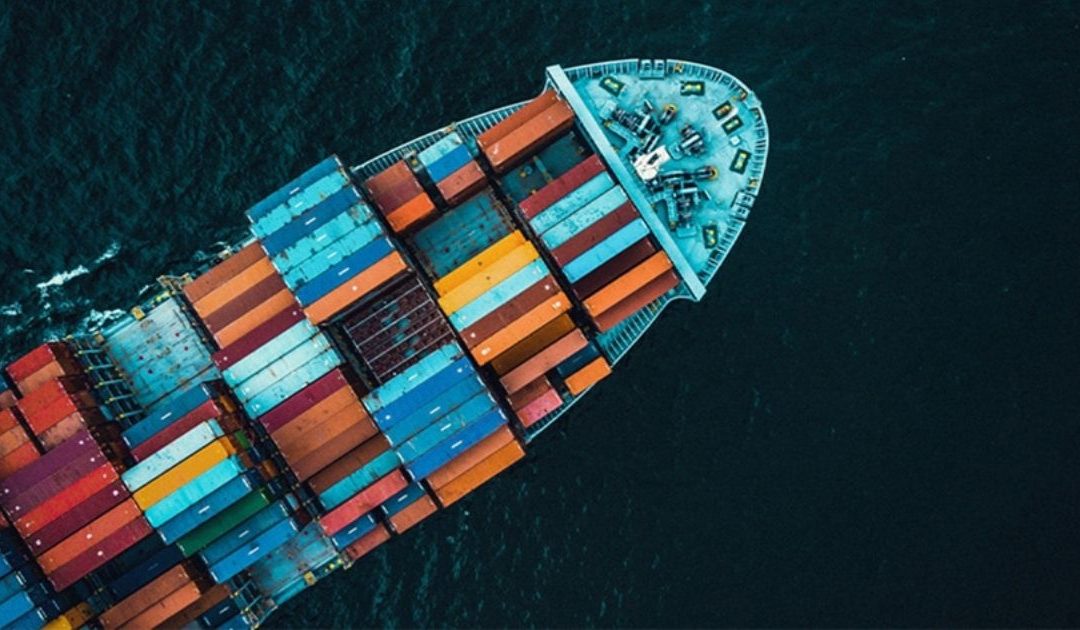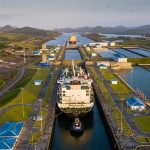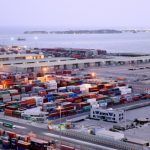In a significant development during the Connecting Europe Days, a leading consortium of maritime organizations introduced the world’s first Carbon Insetting Program for Zero Emission Shipping. This pioneering initiative, unveiled at the RH2INE CE Days session by Future Proof Shipping (FPS), Zero Emission Services (ZES), and 123Carbon, operates within the decarbonization framework of the Smart Freight Centre.
Carbon insetting is a strategy where companies invest in projects within their own supply chain to reduce emissions and carbon footprint, such as reforestation or renewable energy, creating a positive impact on ecosystems and communities. It is a new approach compared to traditional carbon offsetting strategies, where companies invest to just compensate for emissions by funding equivalent reductions elsewhere.
Born from the RH2INE initiative’s collaborative efforts between the Province of Zuid-Holland and North Rhine-Westphalia, the new carbon insetting program for zero emission shipping is a crucial step toward zero-emission transportation along the critical North Sea – Rhine corridor.
Jeannette Baljeu, playing a leading role in the RH2INE initiative as regional minister of the province of Zuid-Holland, highlighted the program’s importance: “The path to decarbonizing inland and short-sea shipping is filled with challenges. However, the latest technological developments show that achieving zero emissions is within our reach, especially with the right mix of government support and market demand.”
Overcoming the Decarbonization Hurdle
Along the journey towards decarbonizing, the maritime sector has encountered obstacles, from funding deficits and regulatory ambiguities to cost-driven contracts. Despite the technical feasibility of zero-emission solutions, the transition is slowed by the significant investments needed for vessels and infrastructure.
Carbon insetting stands out as a strategic solution. Michiel Smit, ZES’s Business Development Manager, called carbon insetting a “revolutionary tool” that encourages collaboration among industry leaders aiming to lower emissions within their supply chains.
Enabling Direct Support for Zero-Emission Initiatives
Carbon insetting empowers cargo owners to fund carbon reduction projects directly strengthening their supply chains’s resilience in the long term, aiming to significantly reduce or eliminate CO2 emissions. Furthermore, this model decouples the financing of emission-reducing initiatives from the physical transportation process, allowing companies to support zero-emission freight services without changing their logistics operations.
Oscar Felix, Future Proof Shipping’s Commercial Manager, expressed his enthusiasm, “Carbon insetting democratizes access to zero-emission options in inland shipping, enabling proactive cargo owners to reduce their supply chain emissions seamlessly. This initiative allows companies to support cleaner shipping practices immediately, without being tied to specific routes or vessels.”
Under the guidance of the RH2INE initiative, FPS, ZES, and 123Carbon have embarked on this insetting project, with 123Carbon and AllChiefs providing the knowledge and the tools to implement carbon insetting. The project aims to develop, test, and validate methodologies for ships powered by swappable batteries and hydrogen, using the Smart Freight Centre’s Book and Claim framework, which separates emission reductions from the transportation of goods.
Kathrin Schuller, Head of Methods, Standards & Assurance at Smart Freight Centre, explained: “This program aligns with the Smart Freight Centre’s guidelines for in-sector decarbonization, ensuring credible and verifiable outcomes through innovative technologies. Adopting a standardized industry approach enhances access to quality decarbonization solutions for all stakeholders in inland waterways.”
Jeroen van Heiningen, founder of 123Carbon, remarked on the program’s significance: “Launching these pilot projects marks a pivotal moment for carbon insetting in inland shipping, introducing the first certificates for hydrogen and battery electrification.”
The initiative aims for widespread dissemination of its findings, with the goal of broadly benefiting the transport industry. This collaborative effort marks a significant stride toward sustainable maritime operations, heralding a greener future for the shipping industry.
Source: Hellenic Shipping News






